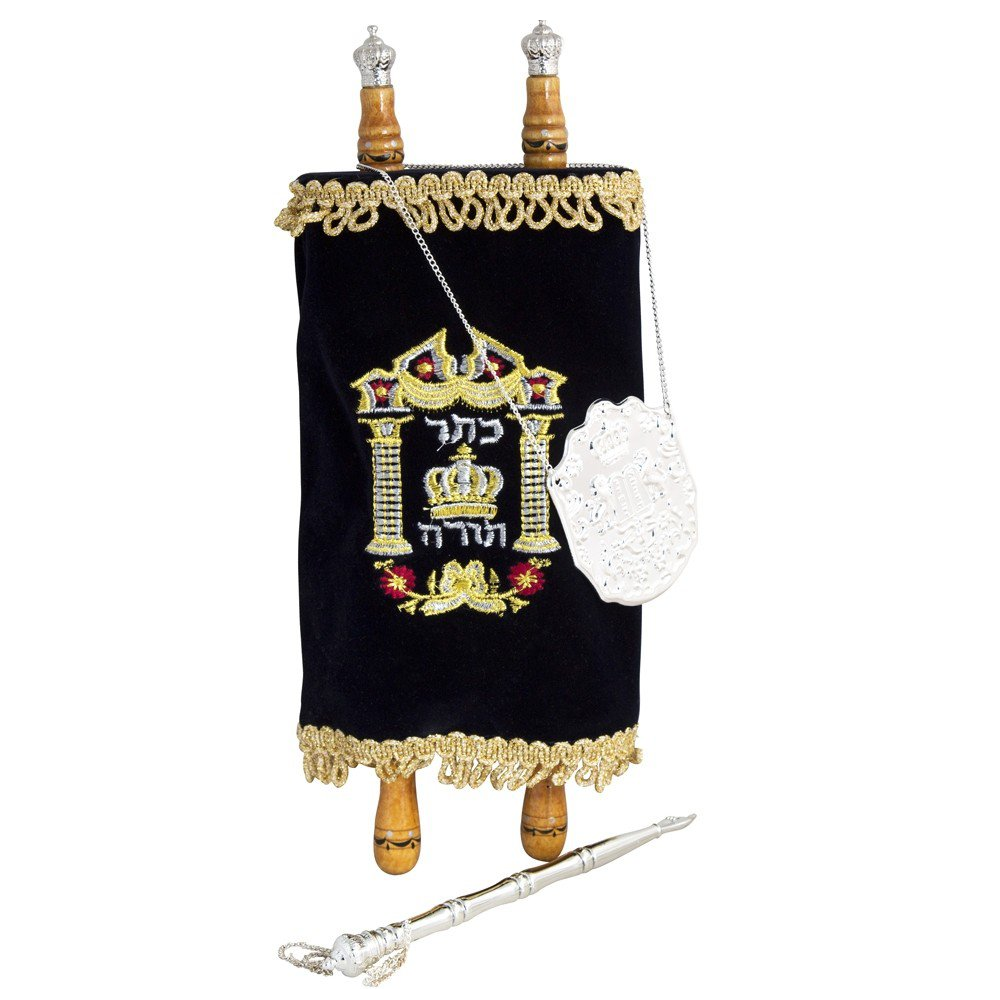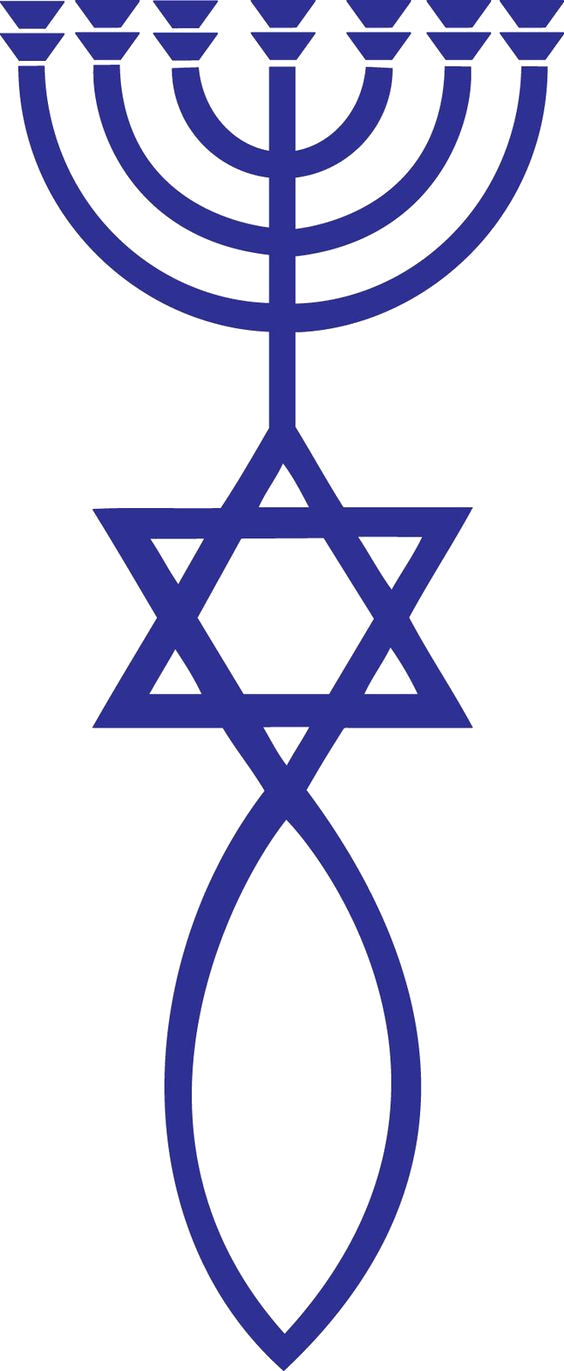|
Weekly Parashah |
|||||
| Torah: Exo. 25:1-27:19 | Haftara: 1 Kings 5 : 26 – 6 : 13 | Brith Chadashah: 2 Cor. 9:1-15 Mt. 12:46–13:58 Mt. 5:33-37 |
|||
| Teruman (Gift, Offering) |
|||||
Scripture: |
Exodus 25 : 1 – 27 : 19 |
Torah |
|||
|
|
Tabernacle: Ark, Table, Menorah25 Adonai spoke to Moses saying, 2 “Tell Bnei-Yisrael to take up an offering for Me. From anyone whose heart compels him you are to take My offering. 3 These are the contributions which you are to receive from them: gold, silver and bronze; 4 blue, purple and scarlet cloth; fine linen and goat hair; 5 ram skins dyed red, sealskins, acacia wood; 6 oil for the light, spices for the anointing oil and for the sweet incense; 7 onyx stones and setting stones for the ephod and for the breastplate. 8 “Have them make a Sanctuary for Me, so that I may dwell among them. 9 You are to make it all precisely according to everything that I show you—the pattern of the Tabernacle and the pattern of all the furnishings within—just so you must make it. |
||||
Scripture: |
1 Kings 5 : 26 – 6 : 13
|
Haftarah |
|||
|
26 Adonai gave Solomon wisdom as He promised him, so there was shalom between Hiram and Solomon, and the two of them cut a covenant. 27 King Solomon also imposed forced laborers from all Israel—the levy was 30,000 men. 28 He sent them to Lebanon, in shifts of 10,000 a month: they would stay a month in Lebanon, then two months at home. Adoniram was over the forced labor. 29 Solomon had 70,000 porters, and 80,000 stonecutters in the mountains, 30 besides Solomon’s chief officers that were over the work—3,300 who supervised the people who were doing the work. 31 Then the king commanded, and they quarried great stones, costly stones, to lay the foundation of the House with cut stones. 32 So Solomon’s builders and Hiram’s builders along with the Gebalites cut them, and prepared the timber and the stones to build the House. Building the Temple6 Now it came to pass, 480 years after the children of Israel came out of the land of Egypt, in the fourth year of Solomon’s reign over Israel, in the month Ziv (which is the second month), that he began to build Adonai’s House. 2 Now the House that King Solomon built for Adonai was 60 cubits[a] long, 20 cubits wide, and 30 cubits high. 3 The porch in front of the Sanctuary of the House was 20 cubits in length—corresponding to the breadth of the House—and its depth was ten cubits from the front of the House. https://www.biblegateway.com/passage/?search=1+Kgs.+5%3A26%E2%80%936%3A13&version=TLV |
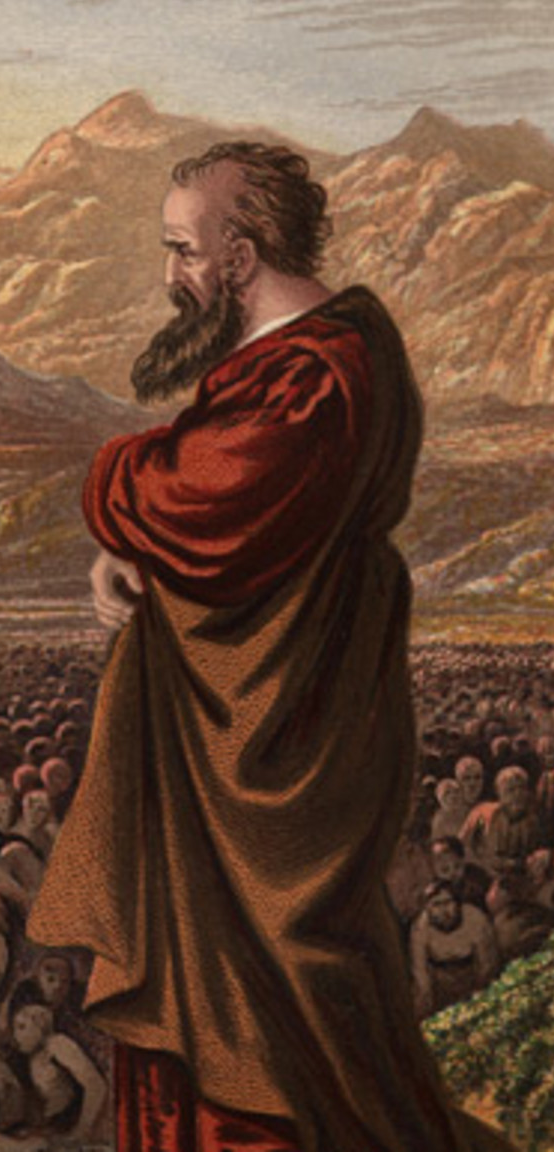 |
||||
Scripture: |
2 Corinthians 9 : 1 – 15 Matthew 12 : 46 – 13 : 58 Matthew 5 : 33 – 37 |
Brit Chadashah |
|||
|
|
Now about this service to the kedoshim, it is indeed unnecessary for me to write to you— 2 for I know your eagerness. I boast about it to the Macedonians, that Achaia has been preparing for a year already; and your zeal has stirred up most of them. 3 But I am sending the brothers in order that our boasting about you may not be in vain in this case, so that you may be prepared, just as I kept saying. 4 Otherwise, if any Macedonians were to come and find you unprepared, we—not to mention you—would be put to shame in this undertaking. 5 So I thought it necessary to urge the brothers to go on to you and arrange ahead of time your generous gift that had been promised beforehand, so that it would be ready as a gift and not as an extortion. Sowing and Reaping Generosity6 The point is this: whoever sows sparingly shall also reap sparingly, and whoever sows bountifully shall also reap bountifully. [a] 7 Let each one give as he has decided in his heart, not grudgingly or under compulsion—for God loves a cheerful giver. [b] 8 And God is able to make all grace overflow to you, so that by always having enough of everything, you may overflow in every good work. 9 As it is written, “He scattered widely, He gave to the poor; 10 Now the One who supplies seed to the sower and bread for food will supply and multiply your seed and increase the harvest of your righteousness. [d] https://www.biblegateway.com/passage/?search=2+Cor.+9%3A1-15&version=TLV Embrace and Refrain46 While Yeshua was still speaking to the crowds, His mother and brothers were standing outside, trying to speak to Him. 47 Someone said to Him, “Look, Your mother and Your brothers are standing outside, trying to speak to You.”[a] 48 But to the one telling Him this, Yeshua responded, “Who is My mother? And who are My brothers?” 49 Stretching out His hand toward His disciples, He said, “Here are My mother and My brothers. 50 For whoever does the will of My Father in heaven, he is My brother and sister and mother.” Simple Stories, Profound Truths13 On that day after Yeshua left the house, He was sitting by the sea. 2 And large crowds gathered around Him; so He got into a boat and sat down, and the whole crowd stood on the shore. 3 And He told them many things in parables, saying, “Behold, a sower went out to spread some seed. 4 As he was scattering the seed, some seeds fell by the road; and the birds came and ate them up. 5 Other seeds fell on rocky ground, where they didn’t have much soil. They sprang up immediately, because the soil wasn’t deep. 6 But when the sun came up, they were scorched; and because they had no roots, they withered away. 7 Other seeds fell among the thorns, and the thorns grew and choked them out. 8 But others fell on good soil and were producing fruit. They yielded a crop—some a hundredfold, some sixty, some thirty. 9 He who has ears,[b] let him hear.” 10 Then the disciples came to Him and said, “Why do You speak to them in parables?” 11 And He replied to them, “To you has been given to know the secrets of the kingdom of heaven, but to them it has not been given. 12 For whoever has, to him more will be given and he will have plenty. But whoever does not have, even what he has will be taken away from him. 13 For this reason I speak to them in parables, because seeing they do not see, https://www.biblegateway.com/passage/?search=Mt.+12%3A46%E2%80%9313%3A58&version=TLV 33 “Again, you have heard that it was said to those of old, ‘You shall not swear falsely, but shall carry out your oaths to Adonai.’ [a] 34 But I tell you, do not swear at all—not by heaven, for it is the throne of God; 35 or by the earth, for it is the footstool of His feet;[b] or by Jerusalem, for it is the city of the Great King. [c] 36 And do not swear by your head, for you cannot make a single hair white or black. 37 But let your word ‘Yes’ be ‘Yes’ and your ‘No,’ ‘No’—anything more than this is from the evil one.” https://www.biblegateway.com/passage/?search=Mt.+5%3A33-37&version=TLV |
||||
Parashah in 60 seconds |
|||||
EWCMI Logo
Our Logo
Reasoning for an updated logo
In unveiling this revised logo, we unequivocally affirm our steadfast support for the nation of Israel, which is inextricably linked to our doctrinal tenets. Moreover, it underlines our commitment to the "Back to our Roots" movement, articulating its significant resonance within our Messianic Charismatic theology. This visual representation serves as a continual reminder of our spiritual lineage, while also affirming our contemporary responsibilities as bearers of light and fellowship in both the Christian and Messianic communities.
By incorporating these potent symbols into our visual identity, we aim to present a harmonious blend of historical truth, faithfulness, and present-day relevance, thereby encapsulating the core values and Intentions of Eagle Wings Charismatic Ministries International.

|
The Bible, The Cross, The Eagle, The World, The Ring of Fire, The two Flags, and the ICHTUS (Fish) with the Menorah, |
The Bible
The belief that the Bible is the "inspired, infallible and only authoritative Word of God" stands as a foundational tenet within Christian and Messianic theology.
When we say the Bible is "inspired," we refer to the divine guidance that the human authors received from the Holy Spirit. This doesn't imply that these authors were merely passive scribes; rather, their unique personalities, styles, and cultural contexts were employed by God to communicate His eternal truths. This inspiration is not sporadic but extends to all the Scriptures, making the Bible a unified yet diverse collection of books that speak coherently about God, humanity, and the cosmos.
The term "infallible" affirms that the Scriptures are wholly reliable and without error in all matters they intend to address. Whether discussing historical events, moral principles, or spiritual truths, the Bible stands as a dependable guide. This infallibility is not just a feature of the text but is intrinsically tied to its divine Author, who is Himself infallible. Therefore, the Bible can be trusted to accomplish its purpose, which, according to Isaiah 55:11, "so My word will be that goes out from My mouth. It will not return to Me in vain, but will accomplish what I intend, and will succeed in what I sent it for." is to achieve the ends for which God sent it.
Finally, the Bible's status as the "only authoritative Word of God" positions it as the final arbiter on all matters of faith and practice. While traditions, reason, and experience can offer valuable insights, they are always to be tested against the canon of Scripture. This authoritative role of the Bible is emphasized repeatedly in both the Old and New Testaments, asserting its unique capacity to guide believers in all aspects of life.
In summary, we believe that the Bible as an inspired, infallible, and only authoritative word serves as a cornerstone for the Christian and Messianic faith. It informs doctrinal integrity, ethical conduct, and spiritual growth, offering a reliable standard by which all other truth claims are measured. This resonates deeply with the objectives of Eagle Wings Charismatic Ministries International, as you endeavor to lead your community in a deeper understanding and application of these foundational tenets.
The Cross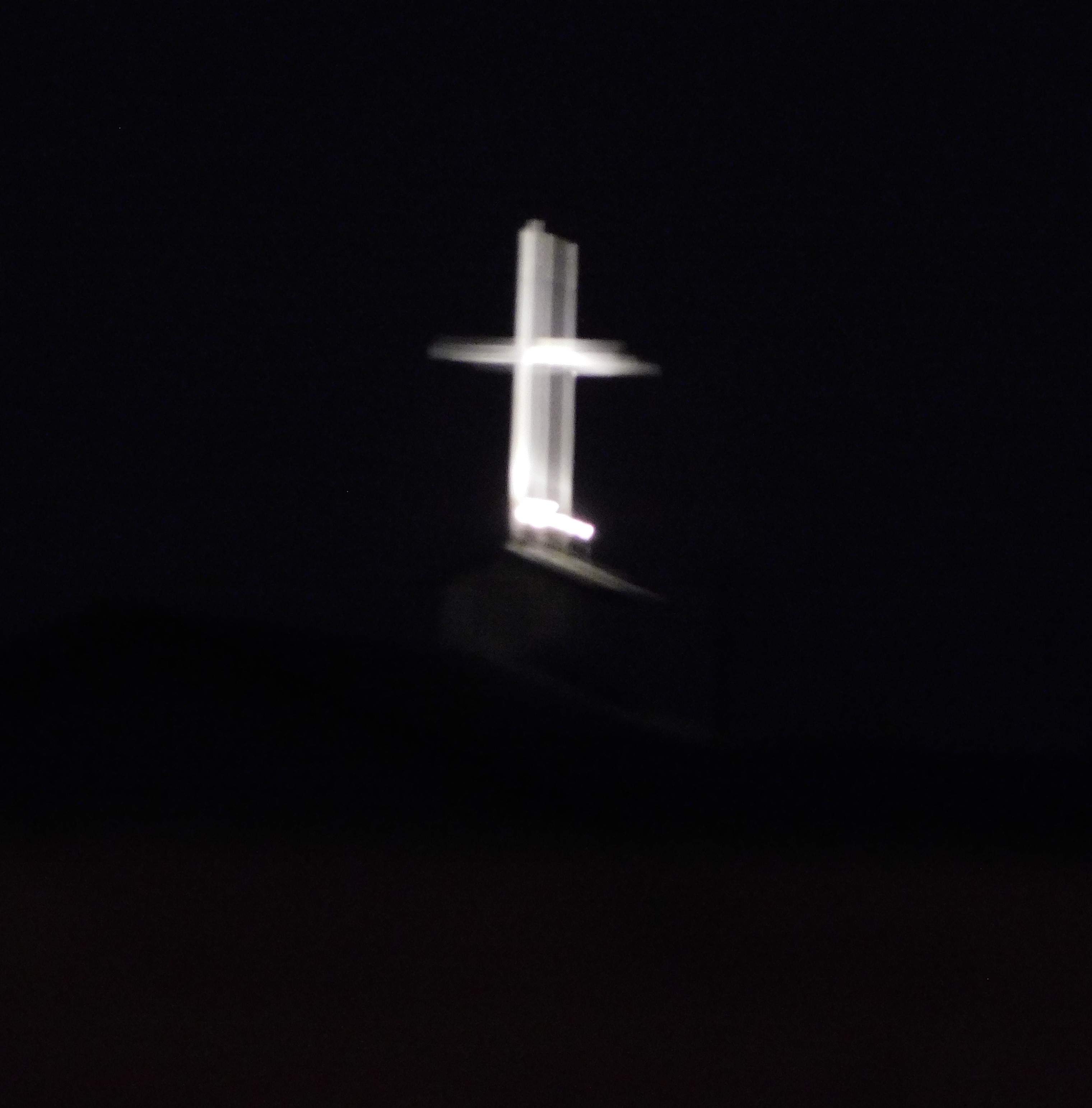
The Cross occupies a central and profoundly significant place in Christian and Messianic theology, aligning closely with the focus of the ministry of Eagle Wings Charismatic Ministries International (EWCMI). It is not merely a religious symbol but serves as the very core upon which the salvation narrative hinges.
The Cross is the instrument of Jesus Christ's ultimate sacrifice—where He voluntarily gave up His life and shed His holy blood for the atonement of humanity's sins. This was not a random or arbitrary act but was divinely ordained, fulfilling Old Testament prophecies and providing a permanent solution to the problem of sin that separated mankind from God.
When Jesus uttered, "It is finished," as recorded in John 19:30, He indicated that the work of redemption was fully accomplished. His sacrifice was both perfect and complete, sufficient to cover the sins of all who would believe in Him. This paves the way for what the New Testament refers to as "being born again" or receiving a "new beginning." It is a transformative experience that involves repentance, acceptance of Jesus as Lord and Savior, and the indwelling of the Holy Spirit.
But the implications of the Cross extend beyond earthly life; they carry eternal ramifications. For those who believe in Jesus and accept His atoning sacrifice, the promise is not just a life altered for the better here and now, but the assurance of eternal life in the presence of God. As stated in John 3:16: "For God so loved the world, that he gave his only begotten Son, that whosoever believeth in him should not perish, but have everlasting life."
Therefore, the Cross is not simply a symbol; it is the epitome of divine love, justice, and grace converging at a singular point in history. It captures the essence of the Gospel message, which the ministry seeks to propagate in alignment with the "Back to our Roots" movement and Messianic Charismatic theology. In contemplating the Cross, believers are reminded of both the gravity of their sin and the grandeur of God's mercy, motivating them to live a life that is in line with the teachings of Jesus Christ.
In summary, the Cross serves as a profound representation of the love and sacrifice that form the cornerstone of Christian faith. It encapsulates themes of redemption, new beginnings, and eternal life, resonating deeply with the aims and aspirations of Eagle Wings Charismatic Ministries International as we guide our community in deepening their understanding of Christian and Messianic beliefs.
The Eagle

The eagle is a powerful bird, often regarded as one of the strongest avian species. With a wingspan that can reach up to 10 feet, it is a creature that commands awe and respect. Its imposing presence serves as an apt metaphor for divine protection and guidance, especially as depicted in the Christian and Messianic Scriptures.
Revelation 12:14 uses the imagery of the eagle to symbolize divine intervention: "And to the woman were given two wings of a great eagle, that she might fly into the wilderness, into her place, where she is nourished for a time, and times, and half a time, from the face of the serpent." In this apocalyptic vision, the "woman" is widely understood to represent the Church—God's covenant community. The eagle's wings signify the divine means by which God will transport His Church to safety during tumultuous times, reminiscent of periods of tribulation or the end times.
This symbolism is not unique to the New Testament but has roots in the Old Testament as well. In Exodus 19:4, we find a similar metaphor: "Ye have seen what I did unto the Egyptians, and how I bare you on eagles' wings, and brought you unto myself." Here, the Israelites are led out of Egyptian bondage, carried "on eagles' wings" to safety, and brought into a covenant relationship with God. This serves as a prelude to the giving of the Ten Commandments and establishes the Israelites as God's chosen people.
The recurrent imagery of the eagle across both Testaments serves to underscore a consistent theme: the extraordinary lengths to which God will go to protect and preserve His people. The eagle becomes a potent symbol of God's providential care, especially when His people are faced with insurmountable challenges. It captures the essence of divine deliverance and sanctuary, making it particularly relevant for your ministry, which aims to guide people back to the roots of their faith and offer spiritual sustenance in complex times.
In summary, the eagle serves as a multi-layered symbol that encapsulates themes of divine protection, covenantal relationship, and eschatological hope. It resonates with the core values and aspirations of Eagle Wings Charismatic Ministries International, as you guide your community in understanding the depths of their Christian and Messianic heritage.
The World
In Matthew 28:19, the Bible tells us, "Go therefore and make disciples of all nations, baptizing them in the name of the Father, and of the Son, and of the Holy Spirit, teaching them to observe all that I have commanded you." This important command from Jesus is often called the "Great Commission."
The Great Commission is not just a good idea; it's a clear instruction from Jesus to all of His followers. It's not just about telling people about Jesus; it's about helping them become true followers or disciples. When Jesus says "make disciples," He means that we should help people to really get to know Him and grow in their faith.
The part about "baptizing them" is an invitation for new believers to join the community of Christians. It's a public way to say, "I believe in Jesus," and it also marks the start of a new life in faith. The mention of the Father, Son, and Holy Spirit shows how deeply connected these three are in Christian belief.
Finally, "teaching them to observe all that I have commanded you" means that learning doesn't stop at baptism. Being a disciple of Jesus means continually learning to live like Him, following His teachings in every part of life.
In summary, the Great Commission is a key task for Christians. It wraps up the important jobs of spreading the word about Jesus, helping new believers grow in their faith, and teaching them to live according to Jesus's teachings. For communities like Eagle Wings Charismatic Ministries International, this isn't just history; it's our ongoing mission to share the message and impact of Jesus all over the world.
 The ring of fire
The ring of fire
A wish for the Nations
Luke 3:16 provides an illuminating exposition on the distinction between the baptism administered by John the Baptist and the baptism yet to be imparted by the one he heralds—Yeshua Ha'Mashiach or Jesus the Christ. John states, "I indeed baptize you with water; but one mightier than I cometh, the latchet of whose shoes I am not worthy to unloose: he shall baptize you with the Holy Ghost and with fire." This verse serves as a profound declaration that the impending baptism by Jesus would not merely be ritualistic or symbolic, but transformative in nature—imbued with the Holy Spirit and with fire.
This "Ring of Fire," as we may term it, signifies an ardent desire for the nations—that the consuming fire of the Holy Spirit would be deeply embedded within the hearts of God's sanctified people, the Christians. The fire serves as both a purifier and an empowerer, enabling believers to emerge as spiritual catalysts in a world veiled in spiritual darkness. This divine fire, once embedded, is not to be contained but is to be disseminated globally, effectively fulfilling the mandate of the Great Commission.
In this conceptual framework, the Ring of Fire becomes not merely a metaphorical construct but a faith-based imperative. It captures the urgency and the necessity for believers to take up the mantle of spiritual leadership, evangelism, and discipleship. This aligns with the ministry's ultimate aspiration—namely, the worldwide propagation of the Gospel, as exemplified by the "Back to our Roots" movement and Messianic Charismatic theology.
Therefore, the Ring of Fire symbolizes a global aspiration, anchored in scriptural truth, for a transformative spiritual experience that radiates from the individual to the collective, fulfilling God’s divine plan for humanity as laid out in the Great Commission.
The Two Flags
The flag of the United States of America signifies not just geographical location but also the foundational principles that underlie the mission of Eagle Wings Charismatic Ministries International (EWCMI). It represents the liberties and freedoms that enable the practice and spread of our faith, which align closely with the ministry's objectives. Within the American context, the flag serves as a testament to the nation where the ministry was founded, emphasizing the call to be both socially and spiritually active citizens.
Conversely, the flag of the State of Israel serves as an enduring symbol of the divine promise as articulated in Biblical texts. The inclusion of Israel's flag encapsulates the theocratic significance of the land as the 'Promised Land,' a land flowing with "milk and honey," a land where God’s covenant with His people finds its ultimate realization. Israel is not merely a geopolitical entity but a theological cornerstone in Messianic Charismatic doctrine.
T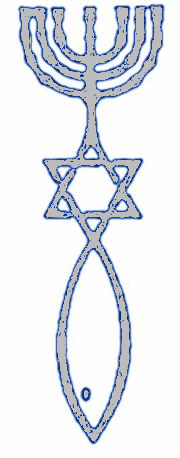 he juxtaposition of the two flags encapsulates a dual allegiance—created both here on earth and in heaven—that is bound together by an unwavering love for God and an abiding respect for the governance under which one resides. It underscores the notion that these two entities, though geographically and culturally distinct, are united in a higher purpose. This unity is fortified by a commitment to the principles of divine love and national responsibility, which we see as not just compatible but intrinsically connected to the life and mission of your ministry.
he juxtaposition of the two flags encapsulates a dual allegiance—created both here on earth and in heaven—that is bound together by an unwavering love for God and an abiding respect for the governance under which one resides. It underscores the notion that these two entities, though geographically and culturally distinct, are united in a higher purpose. This unity is fortified by a commitment to the principles of divine love and national responsibility, which we see as not just compatible but intrinsically connected to the life and mission of your ministry.
Messianic Symbol of the Fish and the Menorah
The Menorah serves as an emblematic beacon, representing not just literal illumination, but also the spiritual enlightenment disseminated by Yeshua Ha'Mashiach, or Jesus the Christ. The shamash candle, often referred to as the servant candle, epitomizes Yeshua's role as the light-bearer. This sacred flame is perpetuated through His Ruach Ha'Kodesh, commonly known as the Holy Spirit, which acts as the conduit for divine illumination and guidance in a world in need of such light.
Similarly, the Ichthys or Fish symbol, historically employed in cryptic form through its Greek acronym ICHTUS, played an instrumental role in identifying safe havens and sacred sites for the early Christian community. This symbol not only functioned as a mark of religious affiliation but also exemplified the covert fellowship among believers during periods of persecution.







